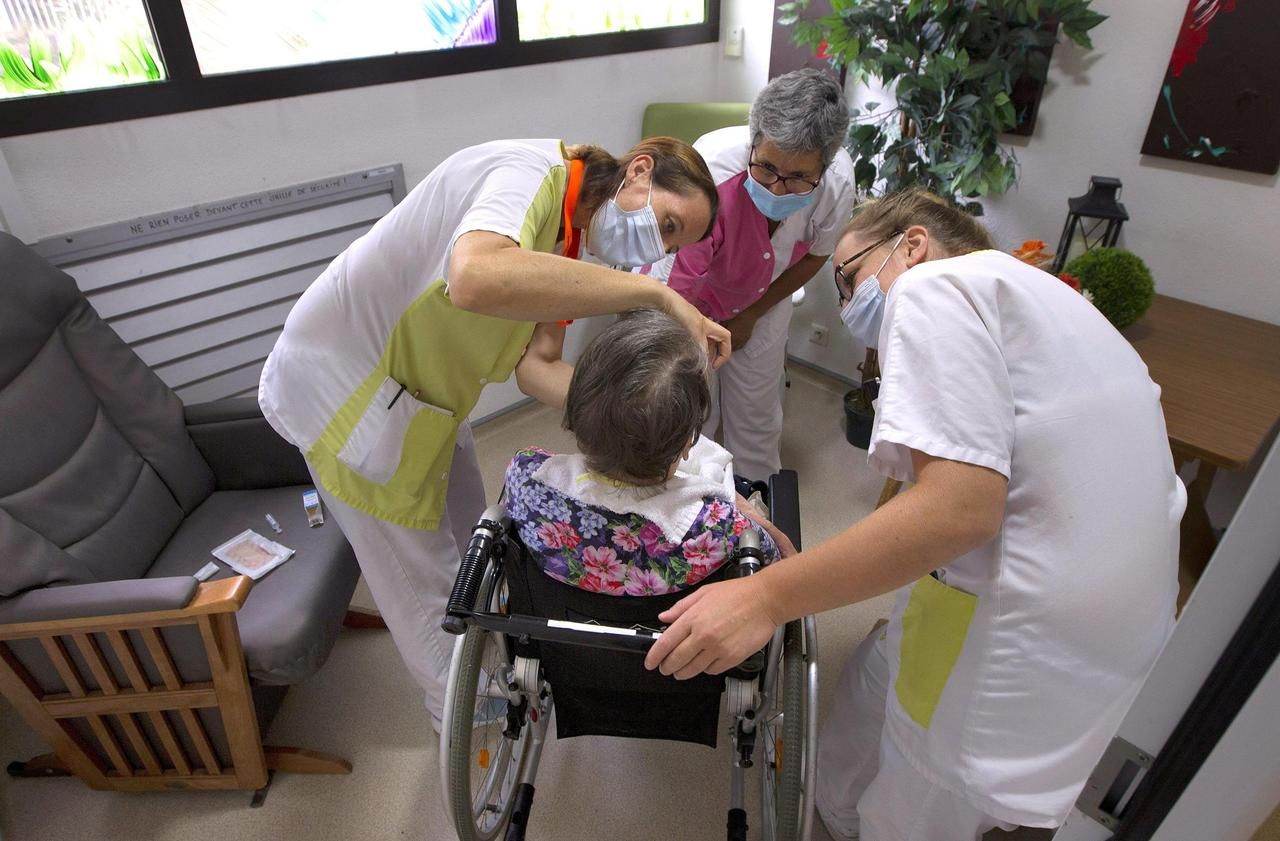
[ad_1]
Beware, confusion or agitation can be the first signs of Covid-19, especially in older people. Mr. B, 85, suddenly began to be confused, to no longer recognize his relatives … Those around him fear a stroke, as the doctor called urgently. It is in the hospital, during a systematic test, that the diagnosis of Covid-19 is made. The scanner then discovers massive lung involvement, but without fever and no respiratory signs.
A few months ago, researchers realized that the coronavirus could induce neurological disorders. This week, German doctors at the Charité Hospital in Berlin discovered that the virus was infecting the brain, presumably traveling along the olfactory nerves. They published their findings in the journal Nature Neuroscience. Until now, doctors believed that these disorders were caused by a decrease in oxygen in the brain.
According to a study published in the journal Neurology a few weeks ago, one in seven people hospitalized for Covid would have neurological disorders. Faced with confusion, signs of pseudo-stroke, loss of speech, sudden changes in gait, in these times of pandemic we must always include the Covid-19 test in the evaluation.
A sign of impact on the brain
Chinese researchers have observed since the outbreak began that consciousness disturbances were a sign of Covid-19. In the United States, the Center for Disease Control (CDC) specifies in the “Symptoms of Coronavirus” section that the sudden onset of confusion, even without a cough or fever, must immediately evoke the disease. These disorders most often affect the elderly. But in one in three people with Covid-19, minor neurological disorders such as loss of smell or taste, headaches, or even dizziness occur. These symptoms, although mild and not severe, reflect the impact of the virus on the brain.
To understand these disorders, German researchers examined the brains of 33 patients (with an average age of 72) who died from Covid-19 under an electron microscope. They observed intact coronavirus particles within the olfactory coating. “Our data suggest that the virus travels from a nerve cell to a nerve cell to reach the brain,” says Dr. Radbruch, from the Department of Neuropathology of the Charité in Berlin. “It is likely, however, that the virus is also transported through blood vessels, as evidence of the virus has also been found in the blood vessel walls of the brain. “
The researchers also identified the virus in areas of the brain that control vital functions, such as breathing. Little by little the strategies of the virus are revealed, opening new perspectives to fight it better.
Source link